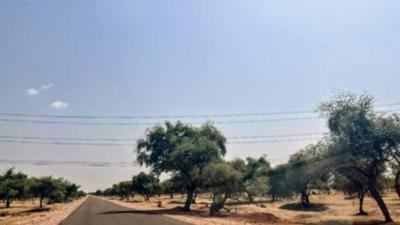Fuelling development? A critical look at government-centred jatropha cultivation for biodiesel as promoted by the biofuel policy in Rajasthan, India
This study examines government-centred jatropha cultivation for biodiesel as promoted by the biofuel policy of the desert state of Rajasthan, India. The drive to find alternative domestic sources of energy is intense in a country which sees demand rising in tact with economic growth, and which fears growing dependency on volatile international markets. Biofuel is seen as a possibility to help meet the demand for liquid fuels across the country. The government-centred model targets state owned wasteland for the plantation of jatropha, a drought resistant, hardy plant which produces non-edible oil which can be used as a diesel substitute. It aims to simultaneously offer a source of fuel, reclaim degraded land, as well as generate income for the rural poor. In this thesis it is argued that the Rajasthani biofuel policy is paradoxical in its approach to rural development as it is an example of top-down development using bottom-up rhetoric. A blueprint for the cultivation of jatropha is welded on to already existing policies which have community participation as a central tenet. The element of participation therefore becomes undermined in the process. The blueprint is also critiqued as being built on unstable foundations; there are questions surrounding the viability of jatropha, as well as concerns surrounding the category of wasteland. All of these issues create concerns for the eventual success of any of the implemented projects. The theoretical criticism in this paper is supported by qualitative data collected in three case study villages in southern Rajasthan.
https://bora.uib.no/handle/1956/4433



